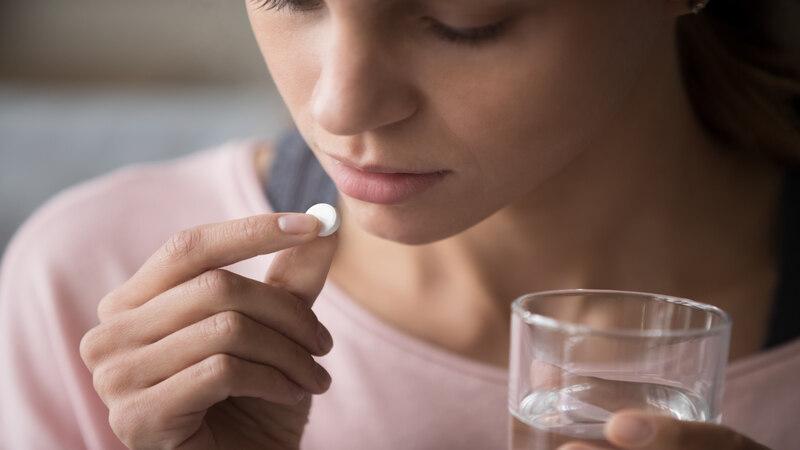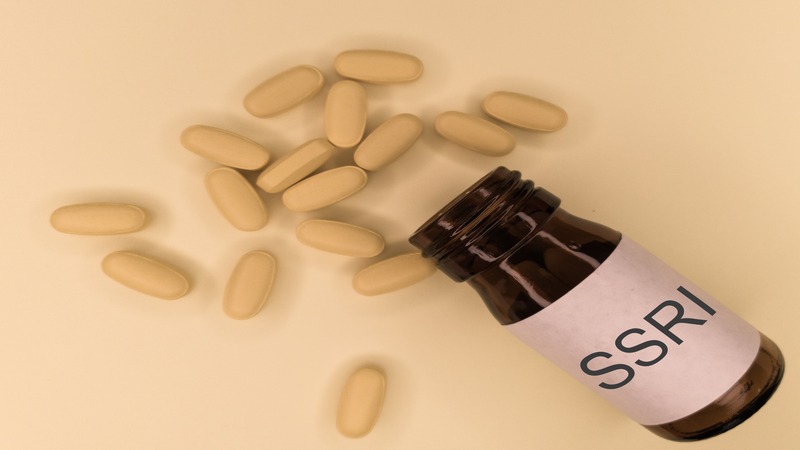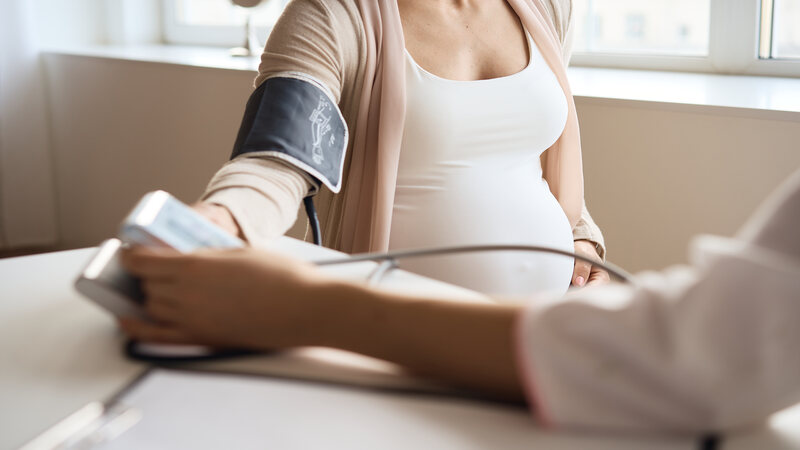
Handling mood disorders like depression, and anxiety is like a double-edged sword during pregnancy. Many advise not to take any medication, especially antidepressants during pregnancy for the safety of the baby. But the truth is all mental disorders also need a paramount treatment.
Pregnancy comes with different mood swings as well. It’s important to know whether that mood swing is a mood disorder. Now the question comes: does a condition like depression need treatment during pregnancy? Does untreated depression have effects on the baby, Does the treatment have inherent risks? Let’s discuss this in this article.
Is it Safe To Take Antidepressants During Pregnancy?
There is always a risk-to-benefit ratio in using Antidepressants during pregnancy. The safety, benefits, and risks always lie in choosing the type of Antidepressant instead of leaving the condition untreated which is way more unsafe (1).
Why is Treatment For Depression During Pregnancy Important?

Treatment for mental illness like depression is important to avoid circumstances like self-harming in mothers and addiction to any substance abuse that can harm both mother and baby.
Here are a few other clinically important concerns if maternal depression is left untreated (2).
- Increase in risk of intrauterine growth restriction of the fetus in the womb
- Low birth weight of baby
- Mother and child relation disturbances
Mentally depressed women tend to get less prenatal care during pregnancy which may have an overall effect on the entire journey of pregnancy and for the newborn.
[Read : Intrauterine Growth Restriction]
Are Antidepressants An Option During Pregnancy?
Getting pregnant when undergoing some treatment-related medication can make you anxious and confused about continuing the medication. You may have heard that some medicines are unsafe during pregnancy. But stopping the medicines that you are already taking may also not be a good idea (3).
However, if the depression is clinically diagnosed, considering Antidepressants as a treatment should be an option.
- First and foremost talk to your doctor if you already have depression and take medication for the condition.
- Talk to your healthcare practitioner about the course of treatment is always advised.
- Get complete information on the prescribed drugs, their risks, and side effects from your healthcare professional.
- Discussing the counseling and other cognitive therapy sessions can be very helpful in dealing with the condition.
[Read : Psychological Care During Pregnancy]
Which Antidepressants Are OK During Pregnancy?

There are different types of Antidepressants available. Out of these only a few categories are beneficial during pregnancy. The list includes
SSRIs – Selective Serotonin Reuptake Inhibitors
These are well tolerated for depression in pregnancy. Most of the research studies suggested no link to birth defects in using SSRIs (4).
However, there are a few risks associated with taking SSRIs (4a).
- Increased risk of neonatal admissions into the ICU
- Increased risk of preterm birth
- Breathing difficulty in newborns
- Risk of spontaneous abortions
SNRIs – Selective Norepinephrine Re-uptake Inhibitors
Although there is no proper research revealing the safety of using SNRIs during pregnancy, a study stated that SNRIs like venlafaxine did not cause or increase major birth defects for babies (5).
However, there are risks like
- High blood pressure in mothers
- Risk of spontaneous abortions
- Congenital malformations in babies
TCAs – Tricyclic Antidepressants
There are other choices of drugs like Tricyclic Antidepressants or TCAs, but again studies state that exposure to certain kinds of TCAs can lead to newborn health complications (6).
Are There Any Other Risks For Babies?
Neonates having Antidepressant exposure in the third trimester may experience withdrawal-like effects from the medication after birth. Most babies show poor neonatal adaptation like (7)
- Severe restlessness
- Hypoglycemia (low blood sugar)
- Weak muscle tone
- Respiratory difficulties
- Temperature instability
- Feeding difficulties
- Irritation and crying
- Convulsions or fits
- Nervousness
Both the mother and child need clinical care and attention even after pregnancy till normalcy is established.
How Does Untreated Depression Affect Pregnancy?

Delay in diagnosis, correct diagnosis, untreated depression, and rejection of treatment all can have a drastic effect on the mother and the baby throughout and after the pregnancy.
Here are a few complications for mothers with untreated depression (7a)
- Morbidity during pregnancy
- Preeclampsia, and Eclampsia
- Suicidal tendencies in the mother
- Postpartum depression
- Mother-child bonding
Here are a few complications for newborns with untreated maternal depression (7b)
- Reduced birth weight
- Increased Preterm labor
- Increased irritability of newborn
- Excess stress hormone cortisol in the body
- Cognitive, emotional, and behavioral abnormalities.
The repercussions of untreated depression are potentially higher than the risks of treating depression and its effects.
Other Treatment Options For Depression During Pregnancy
There are other options to treat Depression like psychiatric counseling, Complementary and Alternative treatments like using omega-3 fatty acids, bright light therapy, acupuncture, massage, yoga, and other exercises (8).
All these options should have a proper clinical assessment for results. In case of no further improvement, it’s better to follow conventional clinical therapies to avoid the aggravation of the condition.
How Can I Balance Between Pregnancy And Taking Anti Depressants?

There are some factors that you need to understand about taking anti-depressants during pregnancy.
- If you get pregnant while taking antidepressant medicines, don’t stop taking it until you get your doctor’s permission
- If a specific medicine has worked for you, and if the side effects of that medicine are not relatively high, most experts will support continuing the same.
- Come in for regular examinations and needed tests to ensure the health of the baby can help to reduce the risk to a certain extent.
- A healthy lifestyle can help in managing depression. Yoga and meditation will help to minimize the stress
- But if you have serious psychological problems or a previous history of recurring attacks of depression then you should stick to the medications.
To conclude, the first step is a proper clinical diagnosis of Depression rather than just a mood swing that can happen during pregnancy. When it comes to treatment many studies advise proper clinical management for depression rather than keeping it untreated. Untreated depression can lead to more serious issues for mother and child than taking treatment. Choosing a proper Antidepressant can treat the condition well and also can avoid birth defects in the neonates. Get well informed about the risks of the treatment how long the treatment should be continued and withdrawal effects.
FAQ’s
1. Which Antidepressants Are Safe During Pregnancy?
If you are diagnosed with depression before pregnancy, it is always better to consult your doctor regarding safe medication. However, SSRIs and SNRIs category medications may be used for depression during pregnancy on doctors’ advice.
2. How Long Should You Be Off Antidepressants Before Getting Pregnant?
Three to six months will be ideal for you to analyze how it’s going without antidepressants and prepare yourself for pregnancy.
3. What to Avoid While You Are on Antidepressants During Pregnancy?
Avoid Driving or Operating machinery, and avoid heights and long staircases. It’s ideal to avoid caffeine, tobacco, and alcohol while on antidepressants.
References
- Payne JL, Meltzer-Brody S. Antidepressant use during pregnancy: current controversies and treatment strategies. Clin Obstet Gynecol. 2009 Sep;52(3):469-82 – https://www.ncbi.nlm.nih.gov/pmc/articles/PMC2749677/
- Chan J, Natekar A, Einarson A, Koren G. Risks of untreated depression in pregnancy. Can Fam Physician. 2014 Mar;60(3):242-3. PMID: 24627378; PMCID: PMC3952758 – https://www.ncbi.nlm.nih.gov/pmc/articles/PMC3952758/
- Antidepressants and Pregnancy: Tips from an Expert, Johns Hopkins Medicine – https://www.hopkinsmedicine.org/health/wellness-and-prevention/
- Antidepressant Use During Pregnancy, American Family Physician – https://www.aafp.org/pubs/afp/issues/2011/0515/p1211.html
- Einarson A, Fatoye B, Sarkar M, Lavigne SV, Brochu J, Chambers C, Mastroiacovo P, Addis A, Matsui D, Schuler L, Einarson TR, Koren G. Pregnancy outcome following gestational exposure to venlafaxine: a multicenter prospective controlled study. Am J Psychiatry. 2001 Oct;158(10):1728-30 – https://pubmed.ncbi.nlm.nih.gov/11579012/
- Gentile S. Tricyclic antidepressants in pregnancy and puerperium. Expert Opin Drug Saf. 2014 Feb;13(2):207-25 – https://pubmed.ncbi.nlm.nih.gov/24383525/
- Dubovicky M, Belovicova K, Csatlosova K, Bogi E. Risks of using SSRI / SNRI antidepressants during pregnancy and lactation. Interdiscip Toxicol. 2017 Sep;10(1):30-34 – https://www.ncbi.nlm.nih.gov/pmc/articles/PMC6096863/
- Deligiannidis KM, Freeman MP. Complementary and alternative medicine therapies for perinatal depression. Best Pract Res Clin Obstet Gynaecol. 2014 Jan;28(1):85-95 – https://www.ncbi.nlm.nih.gov/pmc/articles/PMC3992885/
